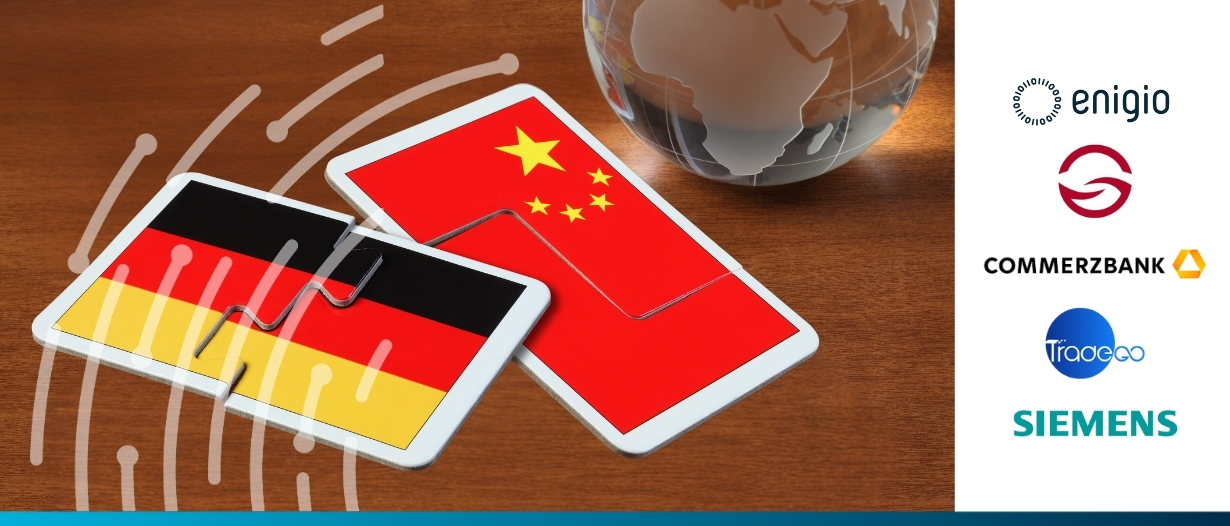Commerzbank, Siemens, and freight forwarder Fr. Meyer’s Sohn completed the proof of concept on 14 July, using electronic bills of lading (eBLs) and digital document flows to process what would traditionally require extensive paper-based procedures under a letter of credit arrangement.
The test transaction showcased the exchange of digital original documents between a German exporter and Chinese counterparts, utilising technology from Swedish company Enigio and Chinese trade platform TradeGo. The eBL was processed through systems built on standards from the Digital Container Shipping Association (DCSA).
The German context
Banks have been exploring digital alternatives for a substantial period. The challenge lies not just in creating digital versions of documents, but ensuring they carry the same legal weight as paper originals and can be seamlessly transferred between different systems and jurisdictions.
Angela Koll, Senior Business Expert for Trade & Supply Chain Finance at Commerzbank AG, told Trade Finance Global (TFG) about the receptiveness for digital trade document solutions amongst organisations from corporates to small and medium-sized enterprises (SMEs), as well as the regulatory landscape in Germany.
Despite technological advances and platforms becoming increasingly sophisticated, corporate demand for digital trade documents remains surprisingly low in Germany. Koll explained that even after the disruptions of COVID-19, businesses continue to prefer traditional paper-based processes for handling trade documents.
This reluctance is particularly evident in trade finance, where processes remain largely paper-based. “The handling of trade documents is still very much reliant on paper,” she said, “and the most important document for us – the eBL, which represents ownership of goods – is still not widely adopted.”
The regulatory landscape in Germany presents fewer obstacles. As per the Handelsgesetzbuch (HGB), the law which governs Germany’s commercial code and accounting standards, there are provisions that allow for the handling of electronic documents from organisations in the country, including eBLs.
While electronic invoices are already being processed in supply chain finance, the complexity increases significantly in trade finance due to the involvement of multiple stakeholders and the need for transferable documents.
This proof of concept (POC), therefore, was designed not only to test the technology but also “to raise attention in the market for handling of electronic documents.” This initiative demonstrated how electronic documents could be transferred seamlessly between carriers, corporates, banks, and international partners using blockchain technology.
Digital documents reduce the risk of fraud, eliminate the need for scanning, enable better data extraction for compliance purposes, and significantly reduce processing times. Where shipping documents from Germany to Asia may take multiple days and require multiple departmental reviews, digital solutions could streamline these processes dramatically. As Koll observed, “it’s amazing that we still handle paper documents” in an increasingly digital business environment.
—
Enigio’s trace:original technology creates digital documents that maintain the unique properties of paper originals, whilst interoperability with TradeGo demonstrated how different platforms can communicate effectively.
“It’s incredibly exciting to see the German industry gain speed on the electric trade document transformation. The validated digital business benefit realisation, in combination with the scale of the German trade economy to and from China, provides a uniquely strong business case,” said Patrik Zekkar, CEO of Enigio.
“The EU is China’s second-largest trading partner, [so] this collaboration is of great significance to promoting the digitalisation of EU-China trade. Enigio and TradeGo have already established the infrastructure of the EU-China digital corridor; we hope to have more application scenarios and facilitate trade for more countries and corporates,” Steven Zhou, Executive Director at TradeGo, told TFG.
Gerhard Heubeck, Siemens’ global head of trade finance, described the POC as “a door-opener for modernisation and digitisation of the export letter of credit business, setting a precedent for global exporters.”
The involvement of Fr. Meyer’s Sohn, which issued the eBL, highlights the critical role of logistics providers in digital transformation. Chief executive Heiko Voigt noted how “digital originals like the electronic bill of lading can transform the supply chain, bringing speed, security, and transparency to international trade.”





























